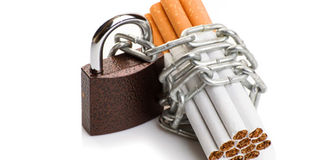How tobacco acts in the mouth

Dear Dentist, I have been a chain smoker for a number of years. My teeth are now coated with black spots and I was advised to visit a dentist for cleaning. However, recently, my teeth started becoming sensitive, could smoking be the cause of this?
MM, Nansana
Dear MM, smoking just like any form of tobacco use has got many side effects not only on our teeth, but to the entire mouth and body.
Use of tobacco affects your health in many ways with gum disease as the most associated problem. When a person smokes or uses tobacco in any form, it affects the attachment of the bone and the soft tissue to the teeth as well as the normal functioning of the gum.
Tobacco consumption increases a person’s susceptibility to infections, impaired blood flow to the gums as well as affecting the healing process in case a person has wounds in the mouth.
Teeth discoloration is another problem resulting from tobacco use. Usually, teeth present with black spots which can only be removed by a professional dentist through cleaning of teeth.
However, a single visit will not be enough especially if you still engage in smoking.
Use of tobacco also leads to increased build up of plaque and tartar on the teeth.
Other effects include:
Increased loss of bone within the jaw area,
Risk of leukoplakia and white patches inside the mouth
Loss of teeth especially as a result of gum disease and high risk of developing oral cancer.
Effects of smokeless tobacco
This can lead to irritation of the gum tissue and receding of the gum, causing gum disease. Receding of the gums can lead to teeth sensitivity. This is because the inner part of the tooth that was covered by the gum is now exposed to the foreign body (food and drinks).
Since most smokeless tobacco contains sugar, it can cause decay since bacteria that initiate decay feed mostly on sugars. This decay can also lead to teeth sensitivity.
Other harmful effects include; cancers of the esophagus and the throat.
It is important to note that most people who have cancer of the lips, mouth, the tongue and the throat use tobacco and this is fuelled by long term exposure.
Tobacco products including unprocessed tobacco leavescontain tiny particles that are abrasive to teeth. When mixed with saliva and chewed longer, an abrasive paste is created which wears down teeth over time. It is always best to consult a dentist or a general doctor on how to quit tobacco use and maintain good oral hygiene.
I advise you to seek dental attention immediately, as you work on ways to quit smoking. It is a dangerous practice.
The writer is a dentist
[email protected]




